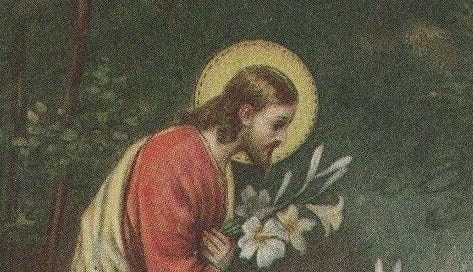Feasts, Fasts, and Flourishing: The Case for a Liturgical Life
A Short Reflection about How a Rhythmic Life Restores Delight
Ever feel like life is speeding past… a blur of work, chores, errands, yet somehow dragging on? We’re hurried and yet weary, as if trudging through molasses. The grind steals our delight in the ordinary; days merge, meaning fades, and we feel soul-tired.
We so often scroll without seeing, speak without connecting, and often eat without tasting. It’s no wonder we sometimes feel adrift, as if disconnected from time itself.
When God commands something, He never leaves us without a way to fulfill it. He always provides the why, and the how.
Therefore, when God says “Delight thyself also in the LORD; and he shall give thee the desires of thine heart” He also gives us so many ways that we are able to delight ourselves in Him. One of those ways is moving through life Liturgically.
The Catechism teaches that the liturgy should reflect and honor the unique cultures of different peoples. Christ’s mystery must be shared in a way that doesn’t erase cultures but rather redeems and fulfills them. In this way, allowing people to come to the Father through their own transformed cultural expressions.1 Further, the Catechism states that:
"In the liturgy, above all that of the sacraments, there is an immutable part, a part that is divinely instituted and of which the Church is the guardian, and parts that can be changed, which the Church has the power and on occasion also the duty to adapt to the cultures of recently evangelized peoples.” (CCC 1204-1205).
Because the liturgy holds space for both the timeless and the changing, we are therefore stitched with a golden thread to the lovers of Christ who came before us. Yet in our own time, we too carry a thread…unique, worthy, and woven into the quilt of God’s unfolding story.
Why is this so important? Why does this gift of the Liturgical Calendar help us to delight in our lives so holistically?
Novelty Breaks the Monotony
Have you ever noticed how childhood summers seemed to stretch on forever, while adult weeks fly by in a blink? There’s a bit of truth behind that feeling. Psychologists say it’s because our brains are hungry for novelty.
As an adult I have found that my days sometime look drearily the same. Wake up at 7:00, make coffee, put on a podcast, wash my face, get dressed, drive to work…. you get the picture.
When our days blur together in sameness, time slips through our fingers. But sprinkle in something new, a change of scenery, a different route home, spontaneity, and suddenly, time expands! The ordinary shimmers. And, it brings joy!
One study found that people who visited more places in a day (yes, even a grocery store and a walk in the park) reported significantly higher positive emotions. Another article called it “experiential diversity,” a fancy term for mixing things up. The result? More joy, more creativity, more life. Novelty, it turns out, is a joyful kind of refreshment. It wakes the soul. It makes us feel like a child again.
So while science tells us novelty brings life to our days, the Church has always taught this truth. Long before “dopamine studies”, she gave us a calendar, not of tasks, but of sacred time, a divine rhythm that refreshes the weary heart.
Church Has Always Known This:
The Catholic liturgical calendar long embraced this rhythm of rest and renewal: feasts, fasts, ordinary seasons, celebrations. It's not arbitrary, it’s beautifully intentional! By weaving novelty, pause, and sacred time into everyday life, the church has helped generations resist monotony, to find time for joy, and time for sorrow in our busy lives.
The Church gives us time to sit with our Joyful Mysteries, Sorrowful Mysteries, Glorious Mysteries, and Luminous Mysteries, right along with our Heavenly Father!

When we live liturgically, each season bring fresh textures, colors, space for sorrow, celebration, reflection, and surprise.
By contrast, the sameness, the forgetting of delight and discovery is what makes us soul-tired. But liturgical living, saturated with novelty and rhythm awakens awe in small things: a shared meal, a candle-lit vigil, a time of fasting, seasons of feasting. These intentional pauses reset our brains and our souls. Time breathes again. We taste life more deeply. What a wonderful and undeserving gift from God!
Conclusion
We don’t need a spiritual band-aid on burnout; we need an embodied rhythm of time. The disciplines of pause, celebration, sorrow aren’t relics. They’re wisdom. They resist the hurriedness of every day live, restore our souls, and invite u to delight in the ordinary again.
Let’s stop living by the clock and start living by the calendar. Feast. Fast. Celebrate. We’ll find that life not only holds more days but more life.
Works Cited
Eagleman & Moody on novelty slowing time and thickening life oprahdaily.com+1gq.com+1
GPS tracking study on experiential diversity and emotion gq.com+2psychologytoday.com+2thesun.ie+2
Psychology Today on novelty boosting creativity, memory, and happiness scitechdaily.com+2psychologytoday.com+2psychologytoday.com+2
The celebration of the liturgy, therefore, should correspond to the genius and culture of the different peoples. In order that the mystery of Christ be "made known to all the nations ... to bring about the obedience of faith, it must be proclaimed, celebrated, and lived in all cultures in such a way that they themselves are not abolished by it, but redeemed and fulfilled: It is with and through their own human culture, assumed and transfigured by Christ, that the multitude of God's children has access to the Father, in order to glorify him in the one Spirit.







Well said! The importance of both routine, both generally and in our spiritual lives, is a vital truth which the Church beautifully gives a mechanism for!
This resonates deeply, even from my Protestant perspective. Your insight about the rhythm of feasts and fasts creating space for both celebration and reflection captures something essential that many of us miss in our either/or spiritual culture.
The way you connect the liturgical calendar to human flourishing reminds me of how Scripture itself moves between seasons of mourning and dancing, fasting and feasting. There's profound wisdom in embracing both the discipline of restraint and the joy of abundance as spiritual practices.
Thank you for this beautiful reflection on how biblical rhythms can restore our souls in a culture that often swings between indulgence and deprivation without the spiritual framework to make either meaningful.